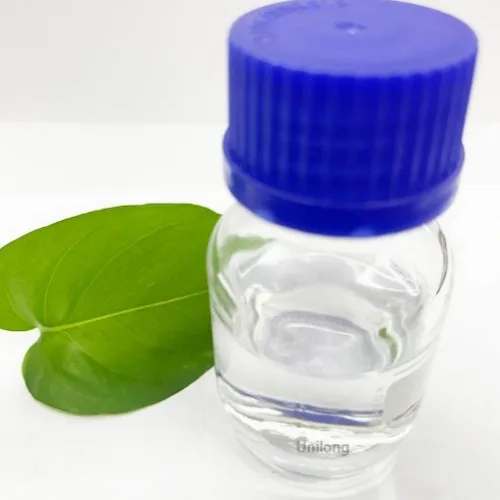Warning: Undefined array key "title" in /home/www/wwwroot/HTML/www.exportstart.com/wp-content/themes/1198/header.php on line 6
Warning: Undefined array key "file" in /home/www/wwwroot/HTML/www.exportstart.com/wp-content/themes/1198/header.php on line 7
Warning: Undefined array key "title" in /home/www/wwwroot/HTML/www.exportstart.com/wp-content/themes/1198/header.php on line 7
Warning: Undefined array key "title" in /home/www/wwwroot/HTML/www.exportstart.com/wp-content/themes/1198/header.php on line 7
- Afrikaans
- Albanian
- Amharic
- Arabic
- Armenian
- Azerbaijani
- Basque
- Belarusian
- Bengali
- Bosnian
- Bulgarian
- Catalan
- Cebuano
- China
- China (Taiwan)
- Corsican
- Croatian
- Czech
- Danish
- Dutch
- English
- Esperanto
- Estonian
- Finnish
- French
- Frisian
- Galician
- Georgian
- German
- Greek
- Gujarati
- Haitian Creole
- hausa
- hawaiian
- Hebrew
- Hindi
- Miao
- Hungarian
- Icelandic
- igbo
- Indonesian
- irish
- Italian
- Japanese
- Javanese
- Kannada
- kazakh
- Khmer
- Rwandese
- Korean
- Kurdish
- Kyrgyz
- Lao
- Latin
- Latvian
- Lithuanian
- Luxembourgish
- Macedonian
- Malgashi
- Malay
- Malayalam
- Maltese
- Maori
- Marathi
- Mongolian
- Myanmar
- Nepali
- Norwegian
- Norwegian
- Occitan
- Pashto
- Persian
- Polish
- Portuguese
- Punjabi
- Romanian
- Russian
- Samoan
- Scottish Gaelic
- Serbian
- Sesotho
- Shona
- Sindhi
- Sinhala
- Slovak
- Slovenian
- Somali
- Spanish
- Sundanese
- Swahili
- Swedish
- Tagalog
- Tajik
- Tamil
- Tatar
- Telugu
- Thai
- Turkish
- Turkmen
- Ukrainian
- Urdu
- Uighur
- Uzbek
- Vietnamese
- Welsh
- Bantu
- Yiddish
- Yoruba
- Zulu
Dec . 25, 2024 12:36 Back to list
xylitol use
The Uses and Benefits of Xylitol
Xylitol, a sugar alcohol found in various plants, has gained popularity as a sweetener and is increasingly used in a variety of products. Its natural sweetness, which is on par with that of sucrose, has made it an appealing alternative to traditional sugars, especially for those looking to reduce their sugar intake for health reasons. This article outlines the many uses of xylitol and explores its benefits in different areas, particularly in health and nutrition.
One of the most significant benefits of xylitol is its role in dental health. Unlike sucrose, xylitol does not ferment in the mouth and is not converted into harmful acids by bacteria. In fact, studies have indicated that xylitol can help reduce the growth of Streptococcus mutans, the primary bacteria responsible for tooth decay. Businesses in the oral care industry have embraced this benefit by incorporating xylitol into various products such as toothpaste, mouthwashes, and chewing gum. Many dental professionals recommend the use of xylitol-sweetened products as part of a comprehensive oral hygiene routine to help prevent cavities and promote overall oral health.
Xylitol serves another vital role in the food industry. It is widely used as a sugar substitute in many products, including sugar-free candies, beverages, and desserts. For individuals managing diabetes or those on low-calorie diets, xylitol provides a sweet taste without leading to significant spikes in blood sugar levels. This is because xylitol has a low glycemic index, making it suitable for diabetic patients who need to monitor their carbohydrate intake carefully. Furthermore, xylitol contains fewer calories than regular sugar, which can help individuals reduce their overall calorie consumption while still enjoying sweet flavors.
xylitol use

Beyond its uses in dental care and food products, xylitol is making waves in the realm of nasal health. Xylitol can help moisten nasal passages and combat the effects of dry air, particularly in arid climates or during winter months when heaters dry out indoor air. Some studies have shown that xylitol nasal sprays can reduce the incidence of ear infections in children, particularly in those with recurring otitis media. The mechanism behind this involves xylitol's ability to inhibit bacterial growth, thereby creating a less favorable environment for infections to take hold.
Furthermore, xylitol has promising applications in pet care. It is well-documented that xylitol is toxic to dogs, causing a rapid release of insulin that can lead to hypoglycemia (low blood sugar) and even liver failure. However, in controlled amounts, xylitol can be beneficial in products designed for oral care in pets. Some veterinary-approved dental chews for dogs and cats now include xylitol to help fight plaque and tartar buildup, although pet owners should always ensure that these products contain safe levels.
While xylitol offers many benefits, it is essential to consume it in moderation. High doses of xylitol may lead to gastrointestinal discomfort, including bloating and diarrhea, particularly in individuals not accustomed to sugar alcohols. Therefore, it is advisable for first-time users to start with small amounts and gradually increase their intake while monitoring any adverse reactions.
In conclusion, xylitol is a versatile sweetener with numerous applications across various sectors, including dental health, food production, and nasal care. Its ability to provide sweetness without the negative health impacts associated with sugary diets makes it a valuable addition to many products. As more consumers become health-conscious and seek out sugar substitutes, the demand for xylitol is likely to continue growing. However, as with any food additive, balance and moderation are key to reaping its benefits while minimizing potential drawbacks. As research continues, we may uncover even more uses for this fascinating compound, further solidifying its place in our daily lives.
Latest news
-
Certifications for Vegetarian and Xanthan Gum Vegetarian
NewsJun.17,2025
-
Sustainability Trends Reshaping the SLES N70 Market
NewsJun.17,2025
-
Propylene Glycol Use in Vaccines: Balancing Function and Perception
NewsJun.17,2025
-
Petroleum Jelly in Skincare: Balancing Benefits and Backlash
NewsJun.17,2025
-
Energy Price Volatility and Ripple Effect on Caprolactam Markets
NewsJun.17,2025
-
Spectroscopic Techniques for Adipic Acid Molecular Weight
NewsJun.17,2025

